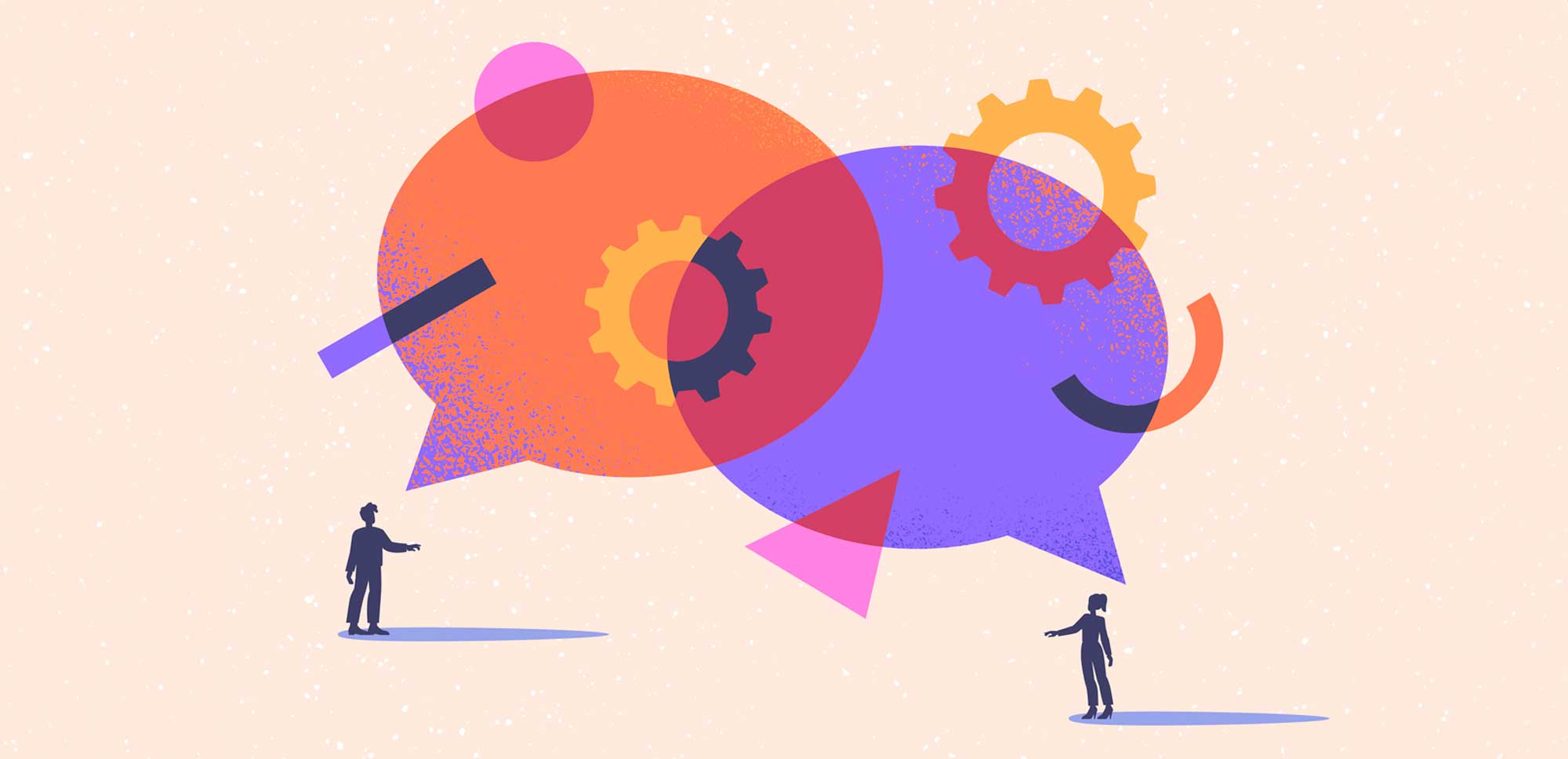Artificial intelligence (AI) is radically transforming the employment landscape, automating tasks and processes that previously required human intervention. While we’re still speculating about the impacts, rather than living them, what does seem a certainty is that the future of many jobs will be linked to AI.
However, this technological transformation brings with it an interesting paradox: as machines take on more technical and repetitive tasks, companies are finding that investing in the soft skills of their employees is becoming more crucial than ever.
What will I read about in this article?
- The rise of soft skills in the age of AI
- The most valued soft skills in the context of AI
- Is it possible to develop soft skills?
The rise of soft skills in the age of AI
The working environment has undergone drastic changes in recent decades, driven by globalisation and digitalisation. The latest episode is the emergence of AI, which is redefining the roles and skills needed at work. The World Economic Forum estimates that 40% of all working hours could be affected .
In this context, soft skills have emerged as a key differentiator. These skills, which include creativity, empathy, and conflict resolution, not only improve individual performance, but also strengthen team cohesion and foster a positive work environment.
In fact, leadership consultant Simon Sinek argues that there’s no such thing as soft skills and prefers to call them “human skills”. According to Sinek, skills such as effective confrontation, empathy and patience are not soft skills; in fact, they’re hard and essential. In a world where technical tasks can be delegated to algorithms, the ability of individuals to interact, innovate and lead humanly becomes an essential differentiating value.

“Skills like effective confrontation, empathy, and patience are not soft or soft; In reality they are hard and essential, but above all, they are deeply human”.
The contrast between the calculated coldness of AI and the intrinsic warmth of soft skills underlines the need to balance both aspects in the professional environment. The successful integration of AI into the workforce lies not only in the advanced technology, but in how people use these tools to leverage their human capabilities. This dual approach promises not only to improve business outcomes, but also to enrich the work experience, making work more meaningful and satisfying.
Research conducted by Boston College, Harvard and the University of Michigan has shown that soft-skill training in communication and problem solving can increase productivity and retention by 12% and deliver a return on investment (ROI) of 250% to the company.
In addition, studies have also shown that leaders with strong social skills can increase their team’s performance by up to 30%.
“Soft-skill training in communication and problem solving can increase productivity and retention by 12%.”
As we move into this era of change, it’s critical that organisations prioritise soft skills development alongside technology adoption. True synergy will be achieved when employees, equipped with both technical competencies and interpersonal skills, can navigate and thrive in an AI-driven environment.
The most valued soft skills in the context of AI
Since the launch of generative AI tools such as ChatGPT at the end of 2022, Harvard Business Review has conducted dozens of interviews with CEOs across all industry sectors. Their goal was to identify how this technology has changed the practices of leading companies.
While training in the use of AI, digital skills, and the need for organisational change management have become increasingly important in recent years, HBR has also found that the new context has also driven the development of soft skills specific to the use of AI.
Through their research, they came up with two categories of human skills that leaders consider fundamental. First, there are effective interpersonal skills, such as basic conflict resolution, communication, the ability to disengage from emotions and even mindfulness practices. These skills enable employees to handle complex and emotional situations with a clear and balanced perspective, essential to maintaining a healthy and productive work environment.
The second is experience, which focuses on preserving knowledge among more experienced employees and transferring and developing it among younger workers. This ensures that accumulated knowledge evolves, adapting to new AI-driven working realities.

HBR research tells us that organisations are increasingly recognising that, while technical skills are crucial, soft skills provide a solid foundation on which to build an effective and resilient team.
Broader research backs this up: a study of 1700 global companies found that companies that excelled on human capital metrics were four times more likely to outperform financially.
This finding underlines their critical importance in creating sustainable value and strengthening organisational performance. In a world increasingly dominated by technology, it is ironic -but true- that the most valuable competencies may be those that make us most human.
Innate or acquired: is it possible to develop soft skills?
One of the most debated questions in business is whether soft skills are innate or can be developed through training. The answer, according to multiple studies and experiences of business leaders, seems to lean towards a combination of both factors.
They may seem innate in some individuals, but most of these skills can be acquired and strengthened over time through appropriate training. Training programmes often include interactive workshops, coaching sessions, and team building activities. These approaches allow employees to practice and improve their skills in a safe and structured environment.
In conclusion, soft skills training is essential for organisational success in the modern world of work. In an era where AI is automating technical tasks, human competencies such as empathy, communication and inclusive leadership become more crucial than ever. They not only improve individual performance and team cohesion, but also create a more positive and equitable work environment. Companies that invest in these skills not only see tangible benefits in terms of productivity and talent retention, but are also better prepared to face the challenges of the future.


